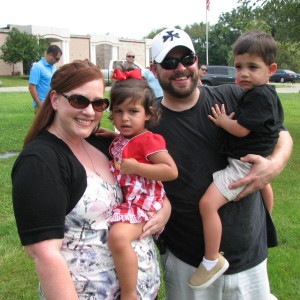 Upon initial research into adopting from Bulgaria, some families have felt discouraged. Families may find online that the program is described as a “special needs only” program or that the wait to adopt a child without significant special needs will be excessive. We are grateful when we have the opportunity to speak with families interested in adoption from Bulgaria, so that we may clarify concerns and dispel myths. Prospective adoptive families are often surprised to learn that MLJ families are adopting children within a reasonable time frame and their adoptive parents do not consider their children to be “special needs” at all. Ultimately, whether it is true that the Bulgaria program is predominately a “special needs” program or not depends on what you consider to be “special needs.” In fact, this also rings true for international adoption in general. Do all children adopted internationally have “special” or additional needs? Depending on your perceptive, the answer may be “yes.” All children adopted internationally have experienced trauma. Trauma manifests itself in many ways (both physically and mentally) and when any of us experience trauma, we often benefit from additional help or support from others.
Upon initial research into adopting from Bulgaria, some families have felt discouraged. Families may find online that the program is described as a “special needs only” program or that the wait to adopt a child without significant special needs will be excessive. We are grateful when we have the opportunity to speak with families interested in adoption from Bulgaria, so that we may clarify concerns and dispel myths. Prospective adoptive families are often surprised to learn that MLJ families are adopting children within a reasonable time frame and their adoptive parents do not consider their children to be “special needs” at all. Ultimately, whether it is true that the Bulgaria program is predominately a “special needs” program or not depends on what you consider to be “special needs.” In fact, this also rings true for international adoption in general. Do all children adopted internationally have “special” or additional needs? Depending on your perceptive, the answer may be “yes.” All children adopted internationally have experienced trauma. Trauma manifests itself in many ways (both physically and mentally) and when any of us experience trauma, we often benefit from additional help or support from others.
When you hear that a child has “special needs” your mind may immediately conjure up more severe needs. You may think about a child that will need to use a wheelchair or has severe cognitive delays. Families that are up for the challenge of parenting children with these needs are amazing and courageous families, but this is not the journey that all or even most adoptive families should take. Parenting a child with known moderate or severe needs may be beyond the parent’s capabilities or resources. It is important that prospective adoptive parents know their family’s limits, and to not exceed their limits. However, once we begin speaking with families and our families begin speaking with a medical professional it is often found that the family is open to many more “special needs” than they thought. This is in part because they did not actually consider certain characteristics of children as “special needs” in the same way that Bulgaria may define “special needs.”
From our experience with adoption from Bulgaria some of the most common needs we see are children that are described to have mild delays, syphilis treated at birth, and strabismus (crossed-eye). These are considered additional needs or “special needs” in Bulgaria, though many adoptive families are open to these needs. Some families are under the impression that they must be open to “special needs” in general to adopt from Bulgaria. Again, this is not the case, but families should be open to some known additional needs, like those stated above in order to have a more reasonable wait time. On average, our families are waiting about 15 months to receive a match with a child and will meet the child soon thereafter.
Families have the opportunity to choose the characteristics that they are open to, so that they are matched with a child who they feel comfortable parenting. We provide our Bulgaria families with a list of characteristics that a child may have so that the family may consider each need individually. We advise all of our families to consult with an International Adoption Doctor when they are completing their characteristics sheet and when they receive a referral. Bulgaria is a Hague Convention country and therefore must provide social and medical information at the time of match with a child. The information about each child is very thorough allowing for a more accurate assessment by a medical professional before the parents move forward with an adoption of that child. Having a thorough medical and social history is one of the many benefits of adopting from Bulgaria.
For more information on adopting from Bulgaria, please contact us.
